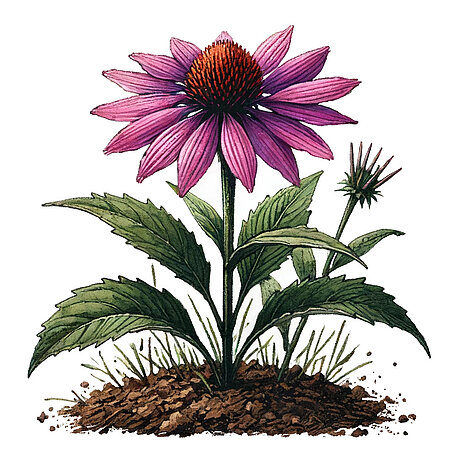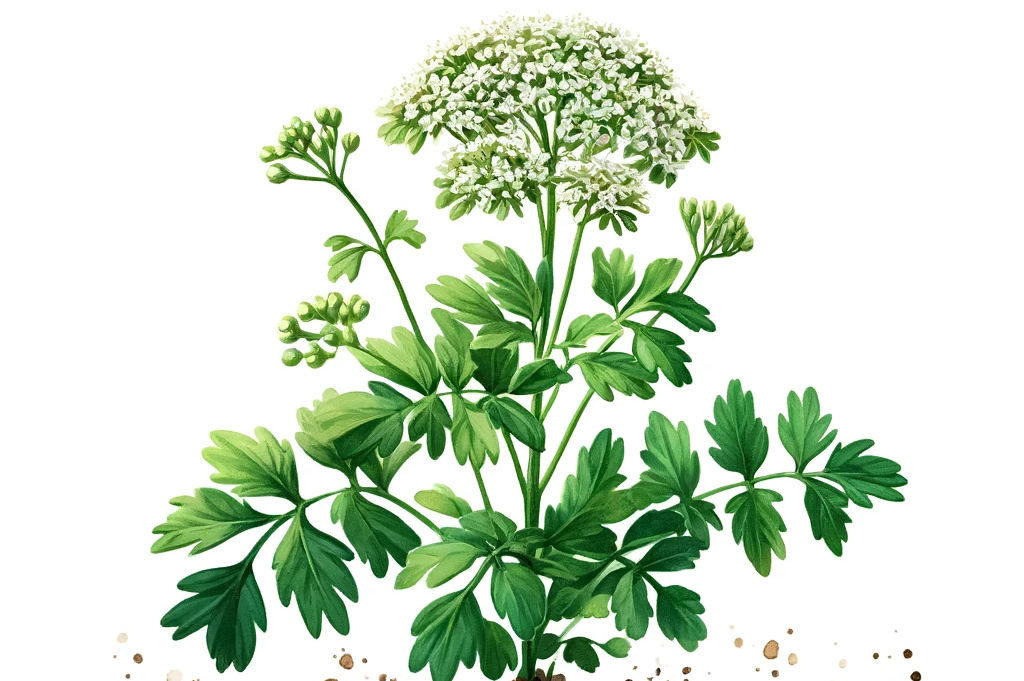Purple coneflower

What is purple coneflower?
Purple coneflower is a perennial plant from the Asteraceae family. Originally native to North America, it is now cultivated worldwide in temperate climate zones. The plant is characterized by its striking purple flowers and robust stem. In naturopathy, purple coneflower is valued above all for its supposedly immune-boosting active ingredients. The active ingredients include polysaccharides, alkamides and flavonoids, which are said to stimulate the immune system.
Is purple coneflower poisonous to dogs?
The safety of purple coneflower for dogs is a much debated topic. Generally speaking, purple coneflower is not classified as toxic to dogs. Many vets and animal nutrition experts even advocate its occasional administration to support dogs' immune systems, especially during the cold season or in stressful situations.
Possible side effects
Although purple coneflower is generally considered safe, some dogs may be sensitive to the plant. Possible side effects can include gastrointestinal complaints such as diarrhea or vomiting. In rare cases, allergic reactions may occur, manifested by itching, skin rashes or swelling. If you plan to give purple coneflower to your dog, it is advisable to start with a small dose and monitor your dog's reaction closely.
Dosage and administration
The correct dosage is crucial to avoid side effects and achieve the desired positive effects. A general guideline is to administer 5 to 10 mg of purple coneflower per kilogram of the dog's body weight. This dose can be given once or twice daily as needed. It is important to only use supplements that are specifically formulated for dogs to ensure that they do not contain any harmful additives.
Potential benefits of purple coneflower for dogs
Regular administration of purple coneflower can have several health benefits for dogs:
Strengthening the immune system
Purple coneflower is often used to support the immune system. The polysaccharides and flavonoids contained in the plant are thought to stimulate the production of white blood cells, which play a key role in fighting off pathogens. This can be particularly helpful for dogs that frequently suffer from infections or whose immune system is weakened by stress or other factors.
Support for infections
In addition to strengthening the immune system in general, purple coneflower can also help directly with infections. The plant is believed to have antibacterial and antiviral properties that can help reduce the duration and severity of infections. This makes it a useful tool in the treatment of respiratory infections and other bacterial or viral illnesses.
Promoting wound healing
Purple coneflower can also be used externally to promote the healing of wounds. The anti-inflammatory properties of the plant can help to reduce swelling and accelerate tissue regeneration. Special ointments or tinctures containing purple coneflower extract can be used for this purpose.
Purple coneflower can be a valuable addition to your dog's health care. Although the plant is generally considered safe, it is important to observe the correct dosage and watch your dog's reaction carefully.
Properties 16
Are you looking for other ingredients with a specific property?
Just click on them to find more.
If you notice any signs of hypersensitivity or poisoning in your dog, you should see your vet immediately. We are not a substitute for a vet, but we try to be as accurate as possible. Every dog reacts differently and we recommend you get a second opinion or consult your vet if in doubt.
Stay healthy and take good care of your four-legged friend!😊
Similar to Purple coneflower
Chamomile is a plant from the composite family that is mainly found in Europe, Asia and Africa. It has white flowers with a yellow center that exude a pleasant fragrance. The flowers are dried and...
Marigold originally comes from the Mediterranean region and was already valued as a medicinal plant in the Middle Ages. It contains many active ingredients that have an anti-inflammatory,...
Valerian is a perennial shrub that can grow up to two meters high. It has white or pink flowers and long roots that give off the typical smell of the plant. The roots contain various substances that...
Goldenrod has a diuretic and anti-inflammatory effect. This means that it promotes the elimination of fluid and toxins via the kidneys and at the same time relieves inflammation in the urinary tract...



